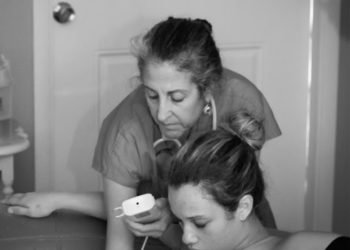Have you ever heard of “coached” or “spontaneous” pushing? Coached (or guided) refers to a technique in which your midwife, doctor, or doula instructs you on when and how to push. The term “spontaneous” pushing refers to following your body’s natural instinct to push. Keep reading to find out the benefits of coached pushing vs spontaneous.
What does Evidence Say?
A medical study published in 2006 provided information on ‘’when and how to push’’. Researchers advised the Mother to push as she pleases. Meanwhile, other researchers have discovered some detrimental connections between guided pushing and delayed pushing.
How Spontaneous Pushing Differs From Coached
Women who push spontaneously take frequent deep breaths before trying to push. They also routinely exhale rather than hold their breath. The midwife or doctor’s job is to advise you to listen to your body and to exert pressure whenever and however you feel fit.
You will experience an overwhelming need to push as soon as you’re completely dilated. Women, especially those who have had an epidural, do not. If you don’t feel compelled to put some pressure at this stage, you can relax as the baby descends solely through the force of your contractions.
Once you feel the desire, you can push for a few seconds during the peak of the contractions. Rather than with every contraction, you can push with considerable strength. Again, follow what your body tells you to do. Women who aren’t being instructed usually let a contraction grow before putting pressure.
Furthermore, spontaneous pushes tend to occur in shorter but more recurrent bursts during contractions. Your body will assist you in directing your efforts. As the baby lowers and exerts greater pressure on your pelvic floor, you may begin to push harder and more frequently during contractions. When pressing, you may also moan, groan, or make other sounds.
Disadvantages of Coached Pushing
Several studies have coached pushing as a frequent practice. Common disadvantages are:
- Increased chance of mild to severe perineal injury
- Episiotomy occurs at a higher rate.
- Because of the increased stress on the infant during the pushing stage, there is a higher likelihood of needing neonatal resuscitation and intensive care nursery admission. (This is frequently caused by acidemia, a buildup of lactic acid in the blood caused by decreased oxygen supply from the placenta.) Most likely caused by holding your breath for an extended period of time when pushing.)
- Many midwives argue that guided pushing ignores a woman’s natural sense of when and how to push and restricts her potential to give birth smoothly.
Disadvantages of Spontaneous Pushing
According to a 2018 study, pushing on your own can take longer than pushing with a coach. Women who practice the spontaneous pushing approach push for around nine minutes less than those who are encouraged to push directly. However, their second stage of labor lasts roughly a half-hour longer if they wait until they feel the need to push.
Besides that, women who do not feel the desire to push may require some assistance in pushing efficiently in the future. Worries and doubts are normal in this stage of pregnancy. Worried that you can’t hear your body’s signs? Scared to push because you don’t favor the sensation? Coaching is a better option than spontaneous pushing.
Factors That Affect Pushing
Pushing gently and following your body’s urges may be easier for the baby than coached, breath-holding pushing. Some additional factors that affect pushing are:
- Early inducement when baby is underweight.
- Amniotic fluid is low
- Past your due date
- Lastly, a baby experiencing signs of stress during the second stage. (This will result in the doctor instructing you to push every other contraction).
In addition, your physician may want to get the baby out as soon as possible in certain instances. We prefer coaching in this case.
Midwives of Midwife360
Midwife360 was formed in 2014 and has since been a cornerstone in South Florida’s women’s health care. Midwife360 offers holistic gynecology as well as midwifery services such as routine women’s care, family planning, and prenatal care and deliveries. This wonderful and astute group of midwives all have a passion for combining traditional and modern medical care approaches.


















